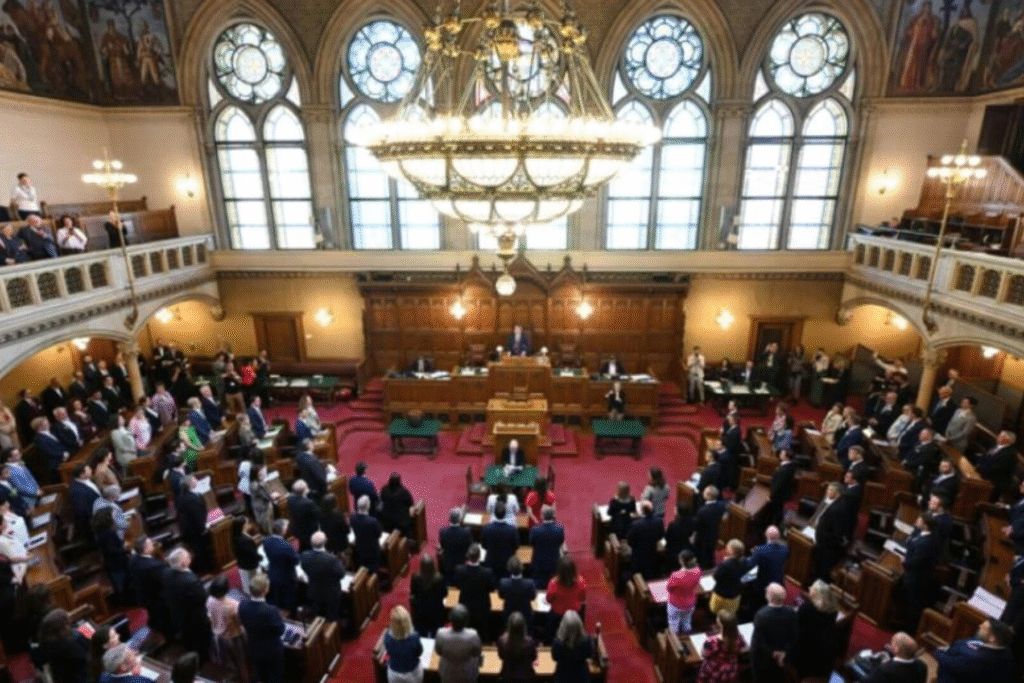
The City of Vienna will present a savings budget for 2026 aimed at reducing the deficit to a projected €2.65 billion through €2 billion in consolidation measures. About €1.35 billion of that will come from spending cuts, Finance Councillor Barbara Novak (SPÖ) said Tuesday. Cuts to the city’s free kindergarten program are not planned. The timetable for the first stage of the subway expansion will also be maintained. Fee increases are also part of the plan.
Revenue of €19.51 billion is expected to face expenditures of €22.16 billion next year. In addition to the planned savings—such as a 10 to 15 percent reduction in subsidies and grants, the postponement of construction projects, and less funding for party academies—the city also aims to raise an additional €350 million, including by increasing the housing subsidy contribution (currently 0.5 percent of the assessment base each for employers and employees, rising to 0.75 percent each). This measure alone is expected to bring in €190 million, earmarked for housing, social services, kindergartens, and schools.
Higher Fire Department Fees
Fees for false fire alarm responses will rise by 50 percent. Park & Ride facilities will see a 4.6 percent increase. A dedicated “culture euro” surcharge on every event ticket is also planned, likely beginning in 2027. Higher dividend distributions from the municipal utilities and Wien Holding are also included in the budget.
The largest savings are expected from further reforms to the minimum income scheme, including a new calculation method for housing costs and shared apartments, and transferring individuals with subsidiary protection status to the basic welfare system. The latter, the biggest item, is projected to generate net savings of €75 million. In total, the city expects to save about €200 million through these reforms.
Subway Expansion To Continue Without Delay
Some construction projects will be delayed, such as the renovation of Laaerbergbad and Seestadt pool, the redesign of Gumpendorfer Street and the Gürtel cycle path, several bridges in the 22nd and 23rd districts, and some administrative building renovations.
However, the free kindergarten, full-day elementary schools, and free school lunches will remain unaffected. Planned hospital projects will also proceed as scheduled, Novak assured. There will be no construction halt on the subway expansion: Stage 1 of the U2 extension (to Matzleinsdorfer Platz) and the U5 (to Frankhplatz) will continue as planned. Negotiations with the federal government on inflation-related cost increases are ongoing.
“Relatively Large Deficit”
Novak described the 2026 deficit as “still relatively large,” but said it marks a break from Vienna’s budget practice of the past 100 years. Instead of merely offsetting inflation and adding spending, the city worked toward reduction. With a 2026 deficit of 2.65 percent, Vienna would stay below the projected 2025 shortfall of around €3.2 billion. If forecasts hold, the city’s debt will rise from €14.9 billion at the end of 2025 to €17.5 billion.
The shift of the budget vote from November to December was explained by Novak and NEOS economic spokesman Markus Ornig, who presented the budget together, as necessary to wait for updated federal revenue figures, civil service wage negotiations, and the recently canceled round of stability pact talks. The budget is to be finalized by November 14, discussed by the city senate and the finance and economic committee on December 9, and debated and approved by the municipal council on December 16–17.

